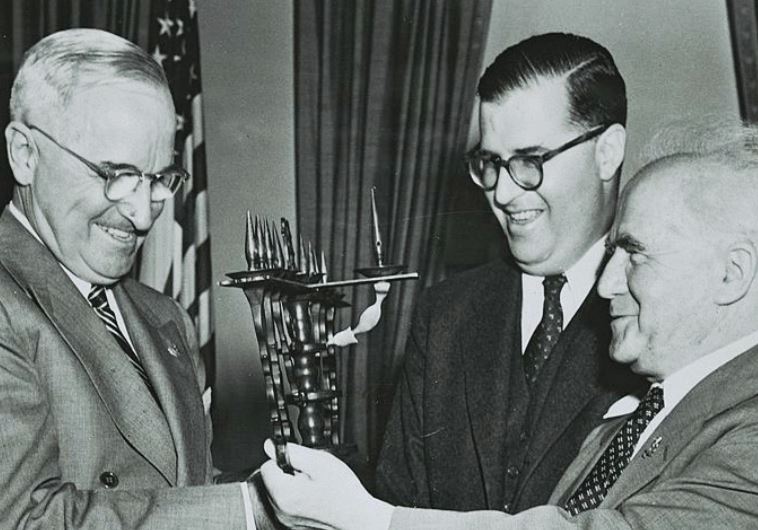Newly-discovered note reveals Truman's fight for Israel recognition
Simon Wiesenthal Center rabbi: “It’s really a tally of a White House effort to get votes for a Jewish homeland.”
 Abba Eban and prime minister David Ben-Gurion visiting US president Harry Truman, 1951.(photo credit: FRITZ COHEN)
Abba Eban and prime minister David Ben-Gurion visiting US president Harry Truman, 1951.(photo credit: FRITZ COHEN)